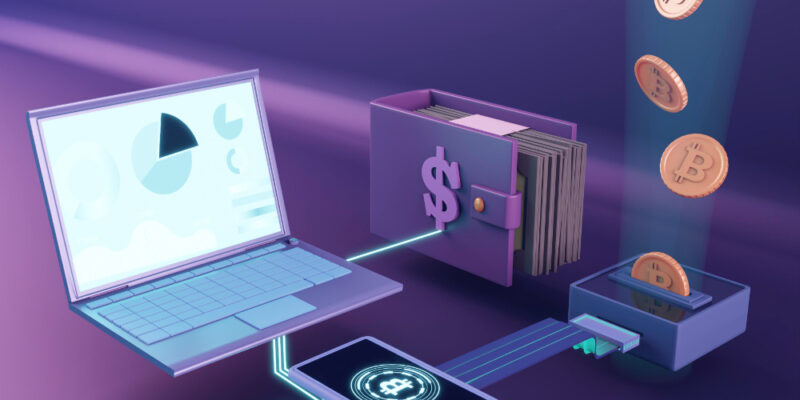Decentralized Finance (DeFi) has reshaped how financial services work. DeFi tokens have emerged as the core drivers behind this transformation. These blockchain-based tokens power lending, borrowing, and payment systems without traditional intermediaries like banks. This shift has brought new possibilities for financial freedom, efficiency, and inclusivity.
Understanding DeFi Tokens
DeFi tokens are blockchain assets designed for decentralized finance applications. They function within decentralized protocols enabling lending, borrowing, payments, and more. Unlike fiat currencies managed by banks, DeFi tokens operate on blockchain smart contracts, making transactions transparent and secure. These tokens can represent different assets, including cryptocurrencies, stablecoins, or even governance rights in decentralized applications (DApps).
Banking Without Banks
Traditional banking relies on centralized institutions to manage deposits, loans, and transfers. DeFi tokens eliminate this dependency by enabling direct peer-to-peer transactions. For example, DeFi lending protocols allow users to deposit tokens as collateral and borrow against them. Borrowers receive loans instantly without lengthy credit checks. Lenders earn interest automatically through smart contracts.
This decentralized approach makes banking accessible to anyone with internet access. It reduces transaction costs and speeds up transfers. For people in underbanked regions, DeFi tokens provide financial services previously out of reach. They enable saving, investing, and earning passive income without traditional banks.
Revolutionizing Lending and Borrowing
Lending and borrowing have become more efficient through DeFi tokens. In traditional finance, banks act as intermediaries between lenders and borrowers. DeFi protocols remove this middleman, offering automated lending and borrowing through liquidity pools.
Here’s how it works: Users deposit DeFi tokens into lending protocols like Aave or Compound. These tokens fund a pool from which borrowers can access loans. Borrowers provide collateral in DeFi tokens, ensuring lenders’ funds are secure. Interest rates adjust dynamically based on market demand and supply.
This system benefits both parties. Lenders earn higher returns compared to savings accounts, while borrowers access instant loans. Unlike traditional lending, where approvals can take weeks, DeFi lending works in minutes. Transparency, automation, and borderless transactions make DeFi tokens a powerful tool in lending and borrowing.
Transforming Payments with DeFi Tokens
Payments have also evolved with DeFi tokens. Traditional payment systems depend on banks and payment gateways, resulting in high fees and delays. DeFi tokens enable instant, low-cost payments globally. Transactions occur on decentralized networks like Ethereum, where payment processing is managed by smart contracts.
For instance, stablecoins such as USDC or DAI have become popular for international payments. Their value is pegged to fiat currencies, minimizing volatility while retaining blockchain benefits. Businesses use DeFi tokens to accept payments from customers worldwide without relying on banks or payment processors.
DeFi tokens also facilitate micropayments, enabling new business models in content creation, gaming, and streaming. Smart contracts automate subscription payments, royalties, and profit sharing without human involvement. This decentralized payment infrastructure reduces fraud risks while boosting operational efficiency.
Challenges and Risks in DeFi Token Adoption
While DeFi tokens offer numerous benefits, they also present challenges. Security is a significant concern, as DeFi platforms have experienced hacks and vulnerabilities. Smart contract bugs can lead to asset loss, making audits crucial.
Regulatory uncertainty is another challenge. Governments are still defining how DeFi tokens fit into legal frameworks. Compliance with anti-money laundering (AML) and know-your-customer (KYC) rules may become mandatory, affecting the decentralized nature of these tokens.
Market volatility is inherent in the crypto ecosystem. Prices of DeFi tokens can fluctuate, impacting the value of loans and collateral. Users must manage risks carefully when participating in DeFi protocols.
The Future of DeFi Token Development
Despite challenges, DeFi tokens continue to revolutionize the financial industry. Developers and entrepreneurs are building innovative solutions to expand token-based banking, lending, and payments. Improved blockchain scalability, cross-chain compatibility, and regulatory clarity will strengthen the DeFi ecosystem.
New DeFi projects are exploring tokenized real-world assets like stocks, real estate, and commodities. This expansion will blur the lines between traditional finance and blockchain-based finance. DeFi tokens have the potential to redefine how global financial systems function.
The Role of Crypto Token Development Companies
Crypto token development companies play a crucial role in shaping this future. They design and deploy DeFi tokens, ensuring security, scalability, and functionality. These companies create custom tokens tailored to specific use cases in banking, lending, and payments.
Developers build protocols with automated features like yield farming, staking, and liquidity mining. By working with a trusted crypto token development company, businesses can enter the DeFi ecosystem with confidence.
Conclusion
DeFi tokens have already begun transforming banking, lending, and payments by removing traditional barriers. They enable fast, transparent, and borderless transactions while offering new income opportunities. As the DeFi space evolves, these tokens will continue reshaping global finance, empowering millions worldwide.
For businesses looking to leverage this revolution, partnering with a leading crypto token development company can unlock endless possibilities. The future of finance is decentralized, and DeFi tokens are leading the way.
